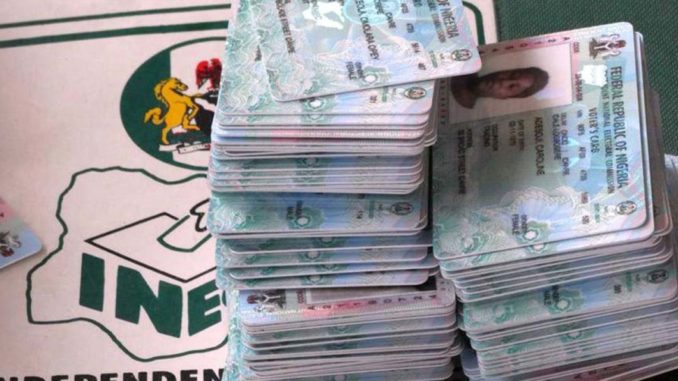
LESS than five weeks to this year’s general election, the news emanating from the Independent National Electoral Commission (INEC) regarding uncollected Permanent Voter Cards (PVCs) is less than cheery. Mr. Adedeji Soyebi, an INEC National Electoral Commissioner, confirmed recently that over 10 million Nigerians have yet to collect their PVCs. The implication of this is simple: if the situation remains the same till the elections, only 74 million out of about 84 million voters INEC claimed to have registered for the general election will be eligible to vote. And in a country where voter turnout during national elections hovers between 40 and 50 per cent of the registered names, the participation of the populace in the leadership recruitment process promises to continue to be poor. The last governorship elections in Ekiti and Osun states recorded poor participation by the electorate in the voting exercise and that is reflective of the situation in other states of the federation. Citizens who do not have PVCs, let alone voting in elections, lack the moral authority to complain about poor political leadership because the primary avenue to reject bad leaders in a democracy is through the ballot box. People need to collect their PVCs and exercise their civic rights.
With 91 registered political parties in the country and about 71 of them reportedly getting actively involved in the 2019 general election, it does not bode well for the preparedness of the parties if over 10 million of the PVCs have not yet been collected by their owners. Rather than channelling their energy at increasing the quantum of eligible voters to scramble for, many of the parties are enmeshed in unwarranted polemics that are only heating up the polity without any promise of value addition to their electoral fortunes. Apart from the INEC which has the statutory responsibility to do so, the political parties, the ultimate beneficiaries of improved number of eligible voters, should be in the vanguard of the sensitisation and mobilisation of persons who have registered to take possession of their voter cards from INEC. The huge number of uncollected PVCs is eloquent testimony that they have not done that effectively. It has even been observed that many among those who attend political rallies do not have PVCs, yet when parties lose elections, they are quick to allude, among others things, to the huge crowd that attended their rallies as evidence of their popularity and why they should have won.
The causes of low voter participation in elections are legion. These include ignorance of the importance of exercising electoral franchise, voter apathy, frustration that votes may not count, fear of intimidation, loss of faith in the system arising from bad political leadership and so on. Truth be told, none of these fears can be wished away as unfounded. However, there can be no good enough reasons for refusing to exercise a crucial civic right like voting in elections, otherwise those discouraging factors will remain and complaints about selfish and incompetent political leadership will subsist. In other words, non-collection of PVCs which presupposes the intention of the citizens concerned not to vote can only make things worse.
There is a sense in which mass political participation tends to result in the development of democracy and the entrenchment of democratic values. The opposite is also true. It is, therefore, imperative that all citizens carry out their civic responsibility during elections, especially now that the escalating menace of vote buying tends to suggest that votes, indeed, do count. If votes do not count, the unscrupulous and selfish politicians would not pay ordinary Nigerians for their votes. And it is time, also, that citizens began to realise that dividends of democracy transcend official provision of social amenities and other public goods; freedom of choice should ordinarily occupy a premium position in the matrix of benefits derivable from democracy. The truth is that public goods can also be provided in a dictatorship and perhaps even more cheaply and faster since the decision making process can really be abridged for obvious reasons. But a dictator does not have the mandate of the people; he/she forces himself/herself on them.
It is of prime importance to note that in a representative democracy, election is the leadership recruitment process of choice and to refuse to vote is tantamount to abdicating the responsibility to participate in a critical decision making procedure with far-reaching socioeconomic and even political consequences. That is not the stuff that good citizens are made of. We, therefore, urge that every citizen who has yet to collect his/her PVC should do so now and endeavour to vote leaders of his/her choice into power. That is the right thing to do, regardless of any misgiving that seemingly makes the contrary somewhat attractive.
END

Be the first to comment